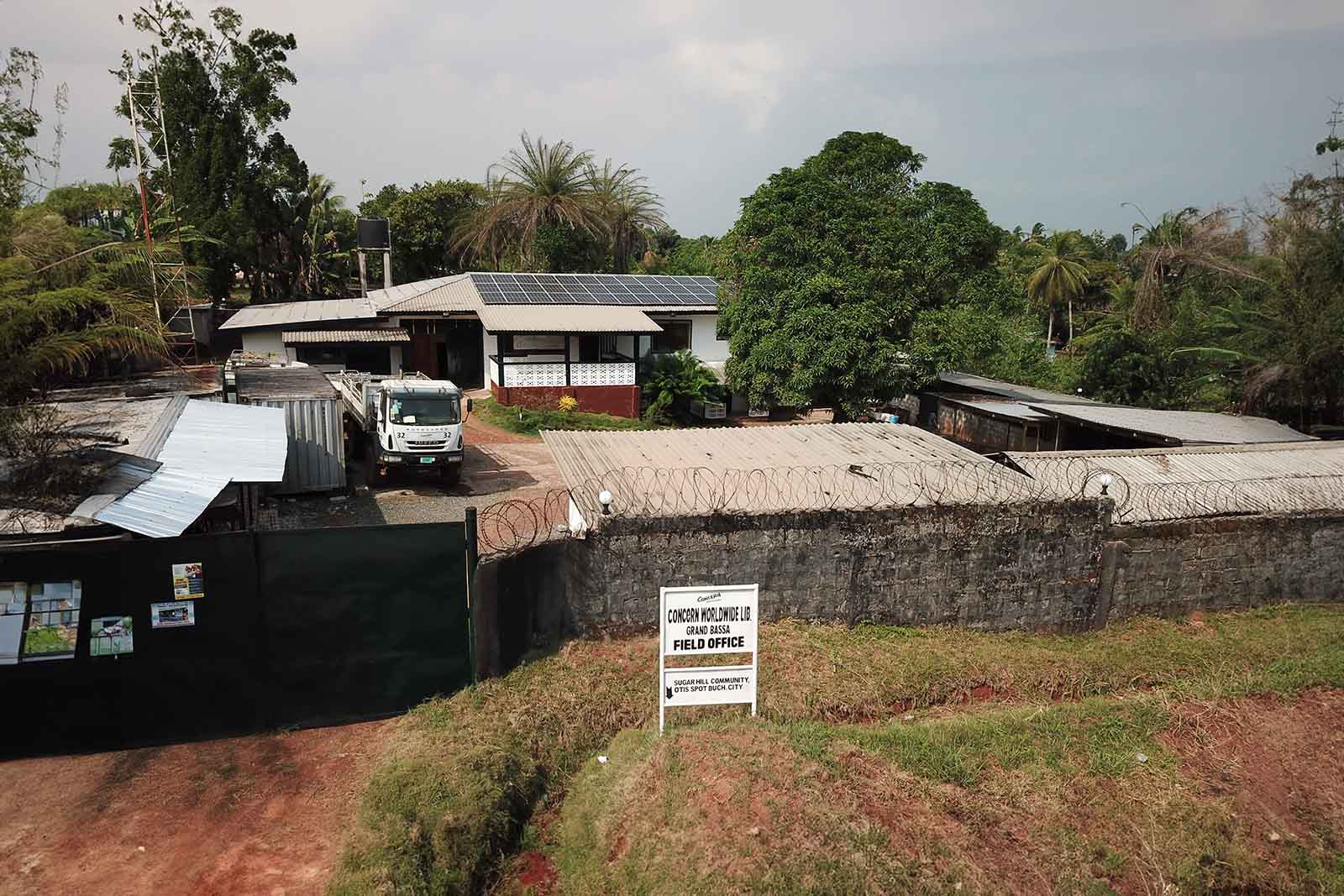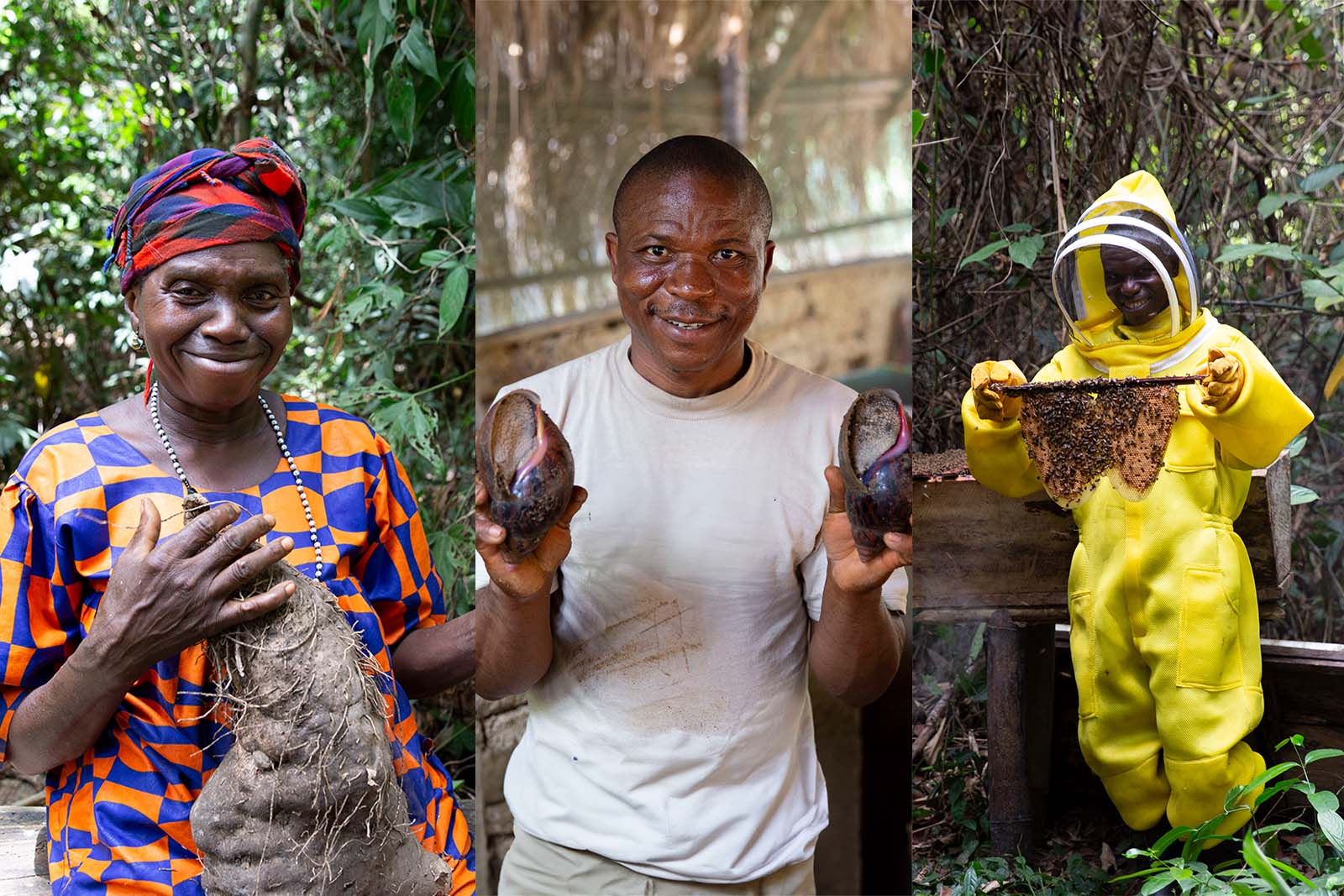A bold decision to rely solely on the power of the sun has ultimately proven successful for Concern Worldwide in Liberia… but it’s been a journey.
A calculated risk
In early 2020, the senior management team at Concern Worldwide in Liberia decided to test the idea of converting their offices to solar power. It wasn’t a decision taken lightly, according to Operations Director Sinéad Clear. “There’s a fairly serious financial commitment to solarizing, and there’s a certain amount of risk involved too. One of the arguments for many people here why not to solarize is the long rainy season. They said because we have a rainy season that lasts between 6 and 7 months, you can’t solarize here.”
Generating electricity from solar energy has come quite a long way over the past decade. Because of advances in the design of photovoltaic cells, modern solar panels don’t necessarily need direct sunlight to generate electricity, although they are at their most efficient under full sun. Increasing the total surface area can also help to boost the amount of electricity generated on cloudy days.
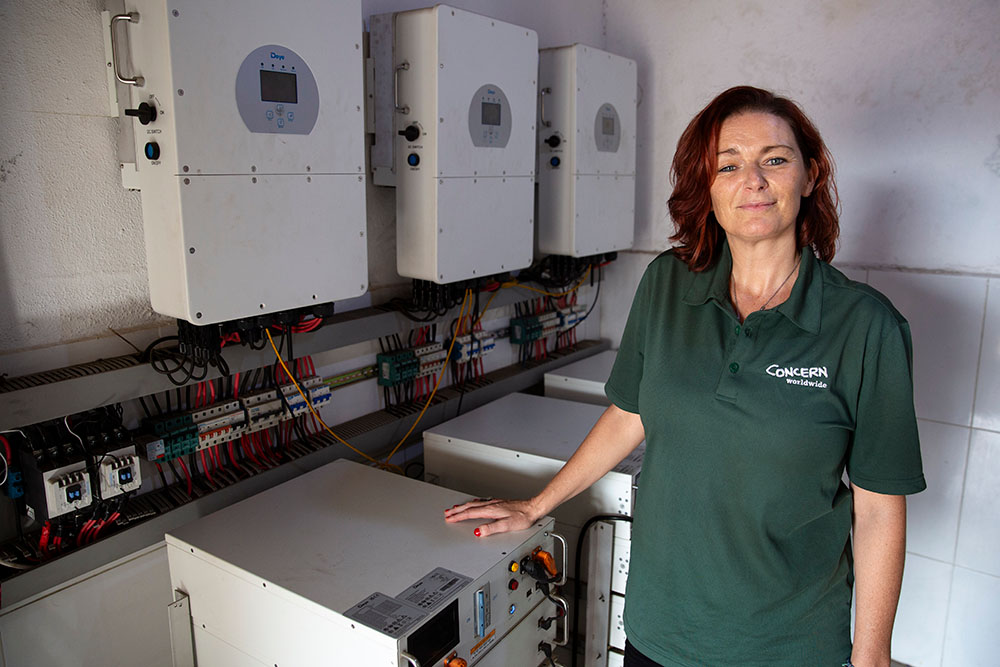
Sinéad explains the reasoning behind the decision to shoot for solar. “In many of the countries where Concern works, including Liberia, the electricity supplied through the national grid can be intermittent, with regular and unexpected outages. In rural locations, often there’s no electricity system at all. Here, only 11% of the population can access power from the grid. This means that traditionally we have had to rely on diesel generators for our offices and team houses.”
Generators come with several drawbacks:
- Firstly, they consume fuel, which in many of Concern’s operational contexts is both expensive and difficult to source.
- They are a source of harmful emissions, including nitrogen oxide (NOx), particulate matter (PM), and carbon, all of which impact the environment.
- They also generate noise pollution, which is actually quite harmful. A 2024 study published in Nature stated: “an increasing body of compelling research and conclusive findings confirms that exposure to noise… can potentially impact the central nervous system.”
- Finally, generators can only run continuously for limited periods before they need to be switched off for cooling, and they need regular maintenance. Often two generators are needed to ensure continuity of supply.
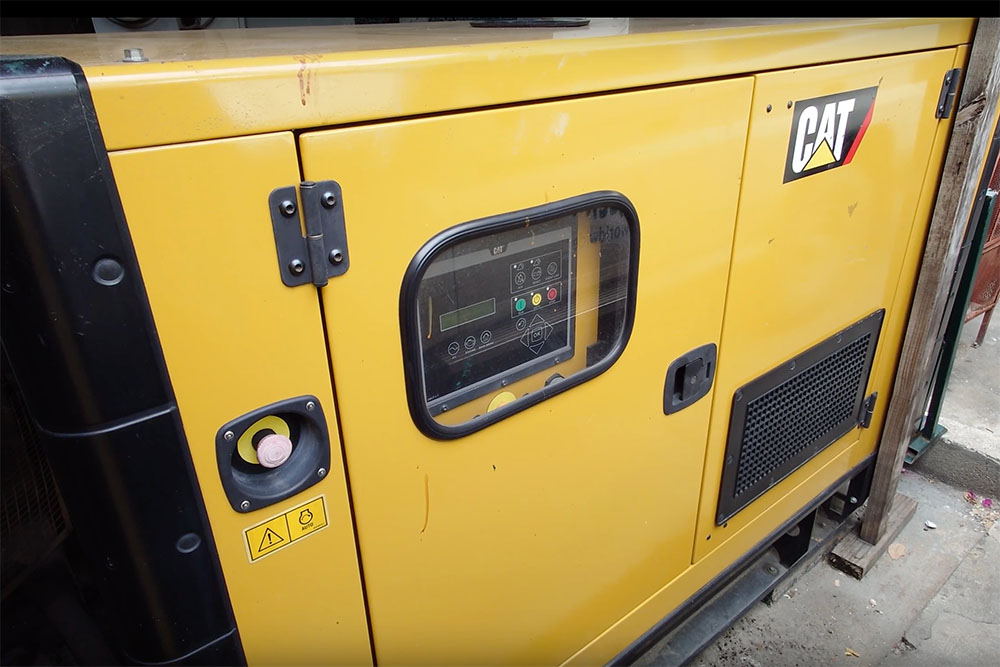
Clean, quiet, and free(ish)
The attractions of solar power are obvious, but it also has its drawbacks. Sinéad Clear says that Concern’s conversion process in Liberia was undoubtedly a learning experience.
“We started off by solarizing our largest program office, in Buchanan, by installing initially a 15 kilowatt solar system, and then six months later, we expanded by a further 12kW. We have 60 solar panels, two inverters, and 36 batteries.”
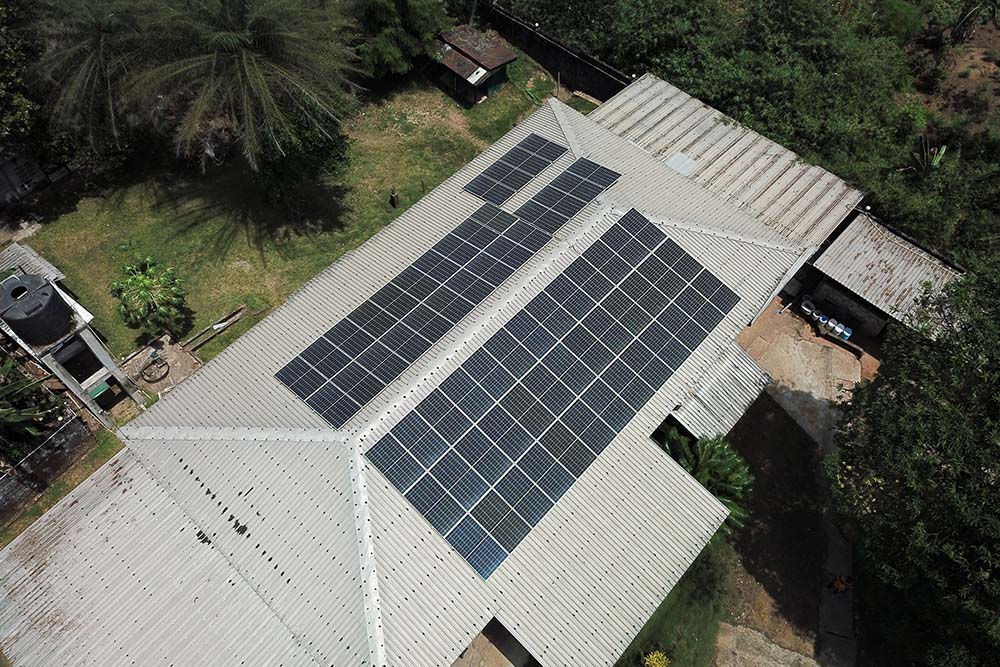
At the time, Sinéad explains, lithium batteries, which are more efficient, were not available locally. However, in this case, battery capacity is not as important as you might imagine. “It's actually more beneficial to install a solar system in an office than it is in a residential area, because the power is being created at the time that you're using the power. So, you can have a much smaller battery bank and you can increase the size of your panels, making it a lot more efficient.”
The lack of local service providers was an issue in the early stages of the project. Although small-scale solar usage has been around in West Africa for years, bigger systems were still quite rare in 2020. That has begun to change in the intervening period, and Concern has been leading the way.
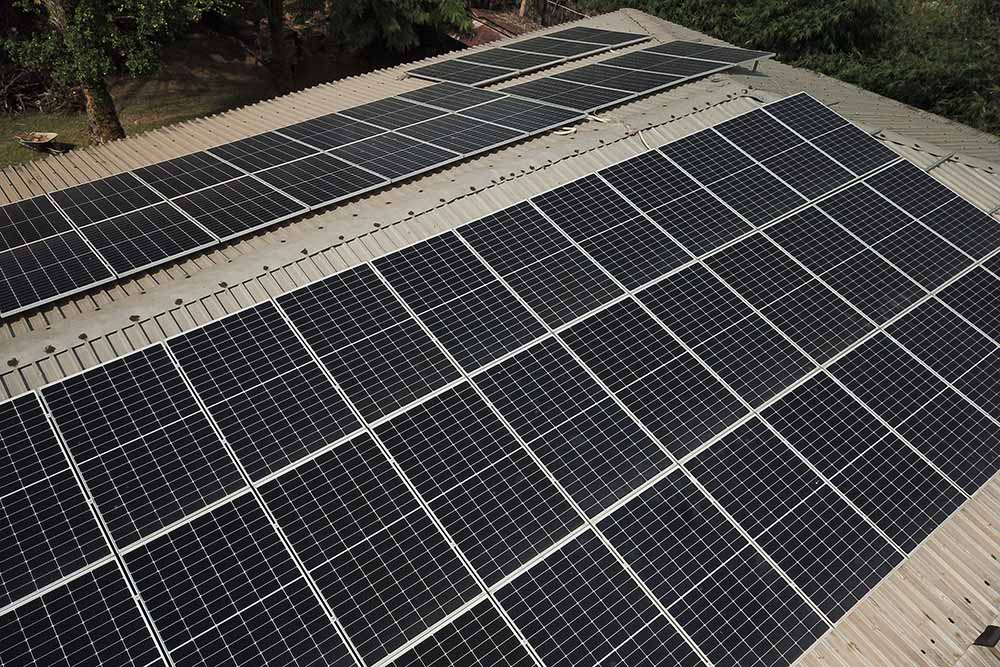
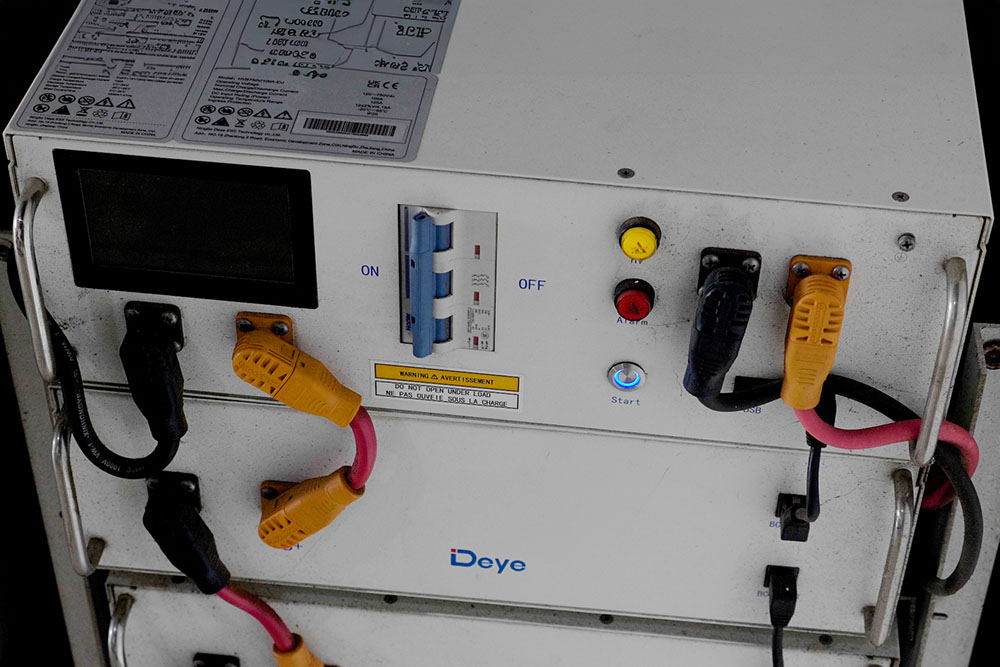
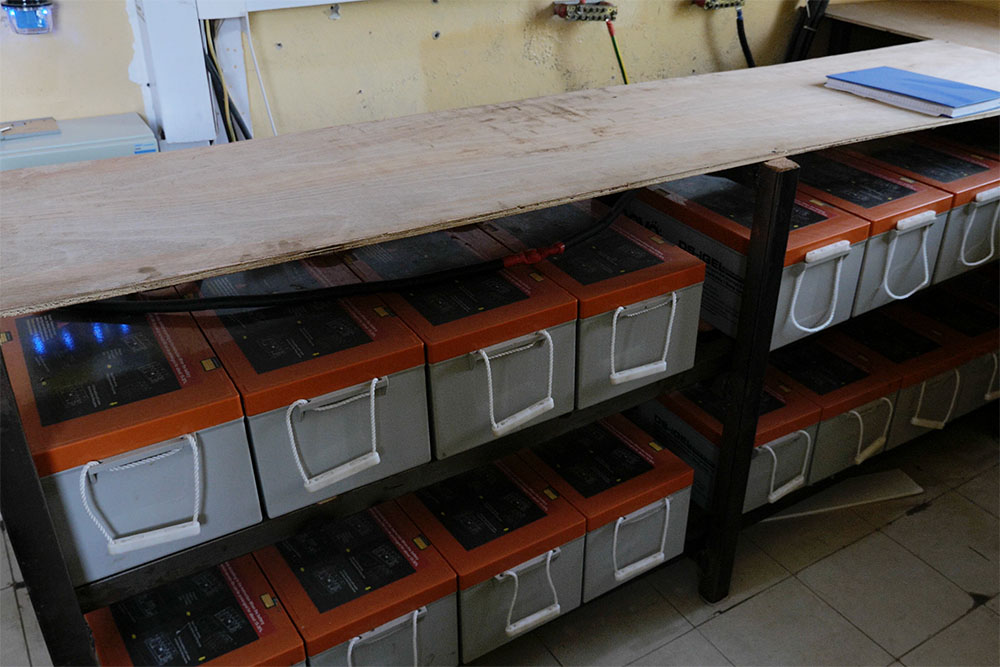
Another challenge in hot countries is the high power consumption of air conditioning units, which can put a strain on solar systems. “In order to install an affordable solar system, there have to be some sacrifices. We've had to turn off some ACs and place fans strategically around the office to improve airflow.”
Sinéad says that having a remote monitoring system in place is important. “Through the app, we can see when the sun is high and we're generating a lot of power. That means we can now turn on some AC units, particularly in the communal areas like meeting rooms. And that's been massively beneficial for the staff, particularly when there is a large group of people congregated in that room.”
Another potential part of the cooling solution may be to cultivate climbing plants that cover the walls of the buildings, absorbing excess heat and releasing a cool micro-mist through something called evapotranspiration.
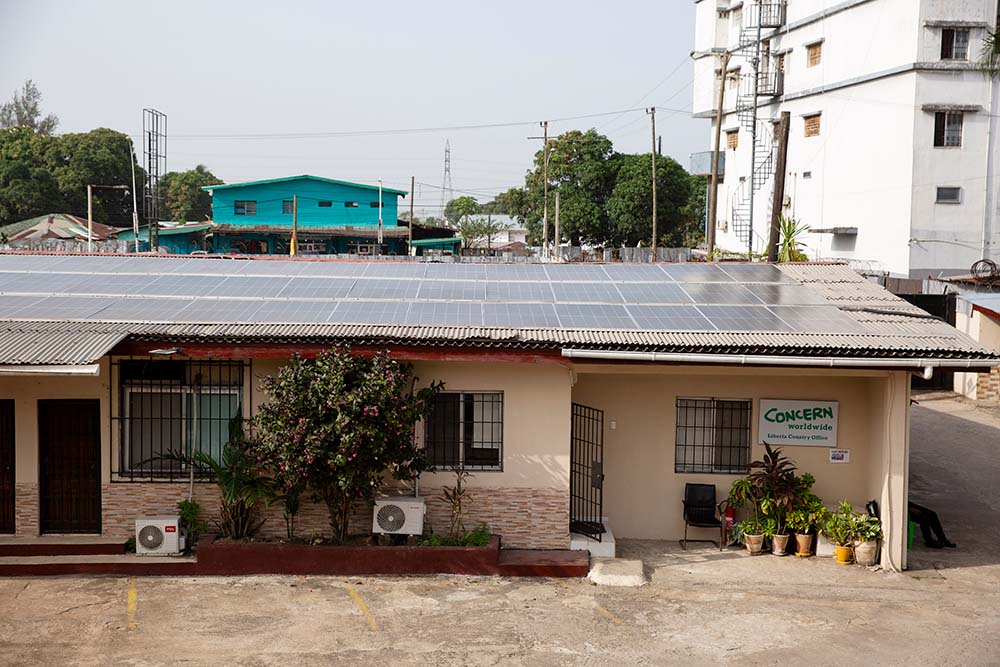
One very welcome benefit is the new sense of calm and serenity that has descended with the arrival of solar power. The ubiquitous, underlying drone of a diesel generator and the accompanying vibrations and smell are gone and that’s a big relief.
The biggest hurdle of all in solarizing is still the high initial cost of the equipment and installation. But, viewed in the long term, it can make economic sense to make the investment. In the case of Concern’s head office in the Liberian capital Monrovia, which is rented, Sinéad was able to convince the landlord of the benefits of solar and it was he that installed the system.
Today, she says, all 4 of Concern’s offices in Liberia operate on solar power, a global first for the organization and a source of pride for the team. “It’s running really, really well. We've probably only turned on the generator a handful of times in the past 3 years.”

